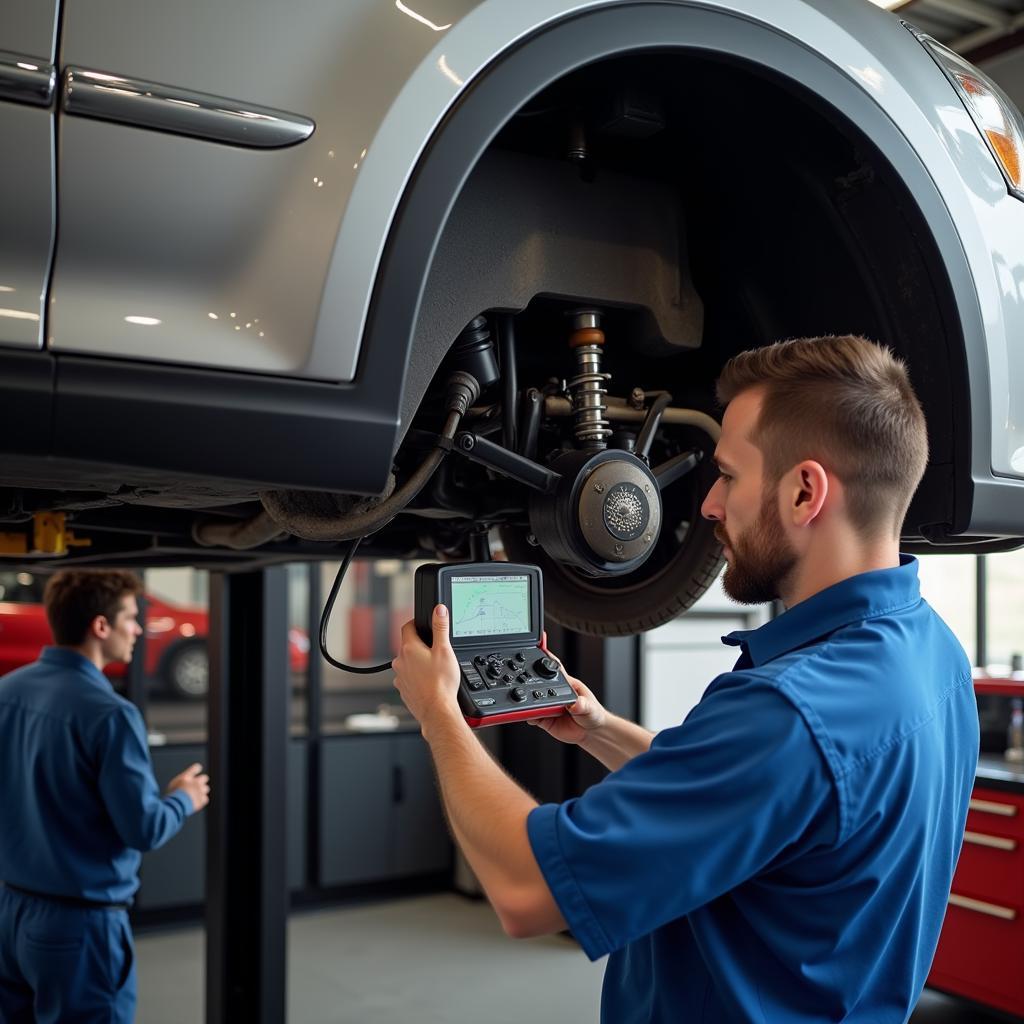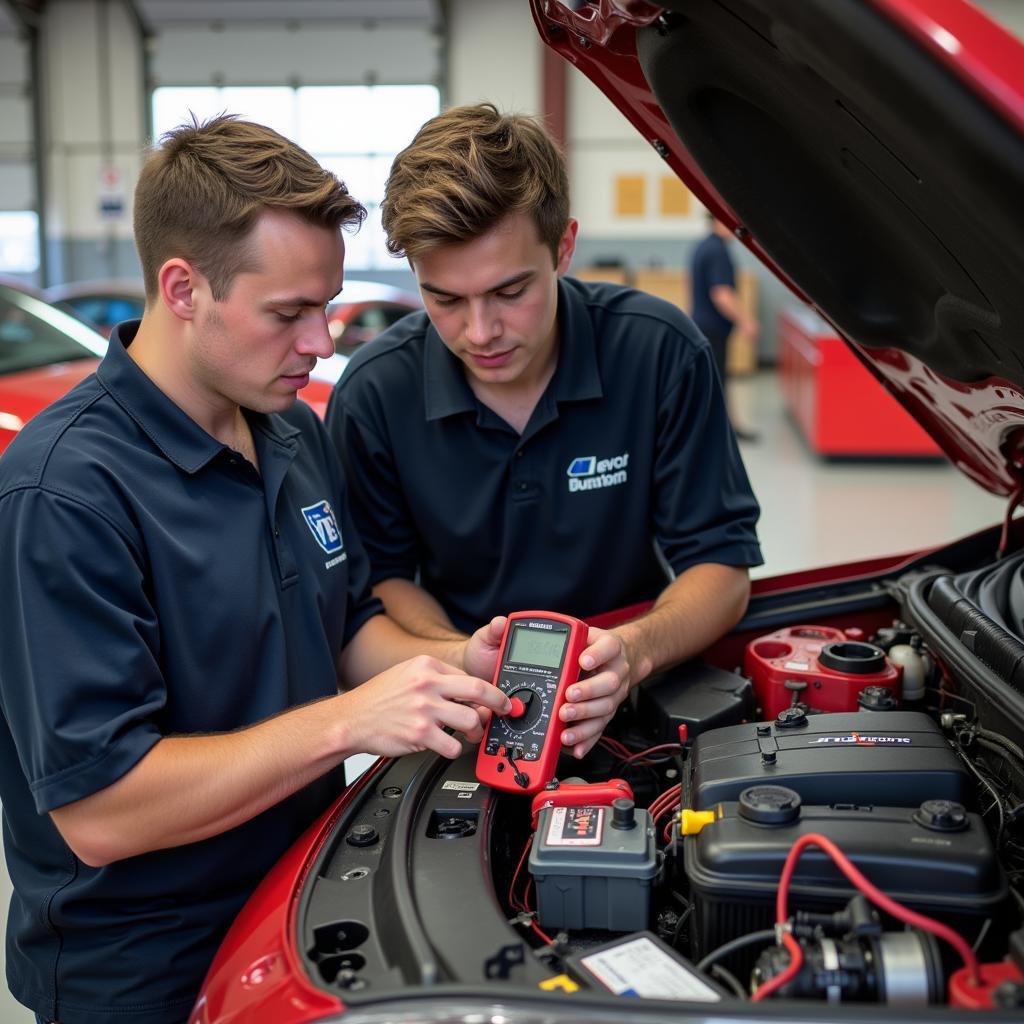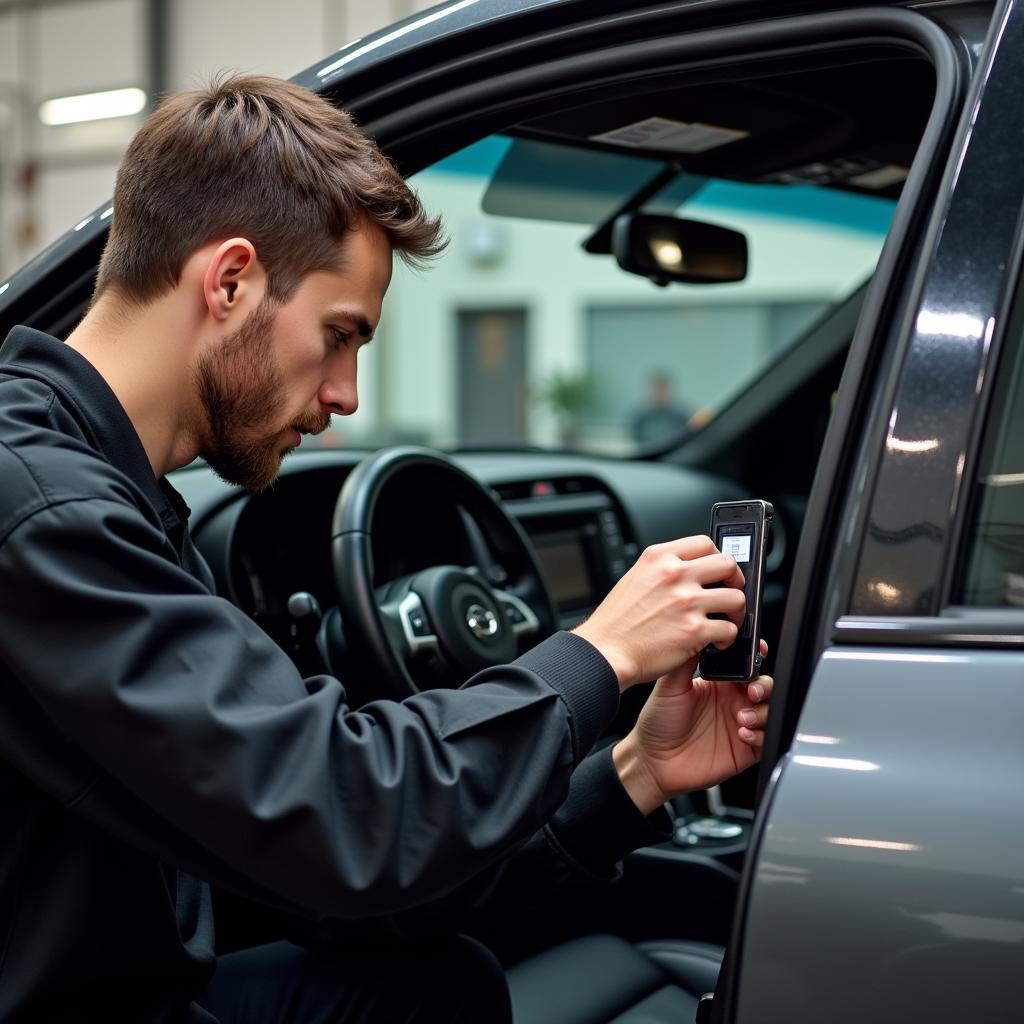A car engine not starting can be incredibly frustrating. This guide will walk you through common causes and solutions for this all-too-familiar problem, from the simplest checks to more complex diagnostic procedures. Let’s get that engine roaring back to life! common car start problems
Common Reasons for Car Engine Not Starting
There are numerous reasons why your car engine might refuse to start. Some are simple fixes, while others require a more in-depth approach. We’ll start with the easiest checks you can perform yourself.
- Dead Battery: This is perhaps the most common culprit. Symptoms include dimming headlights, clicking sounds when turning the key, and a completely unresponsive engine.
- Loose or Corroded Battery Terminals: Even with a good battery, dirty or loose terminals can prevent the current from flowing.
- Faulty Starter Motor: If you hear a single click or a grinding noise when turning the key, the starter motor might be the issue.
- Bad Alternator: While a bad alternator won’t prevent a car from starting initially, it will prevent the battery from recharging, leading to starting problems down the road.
- Fuel System Issues: Problems with the fuel pump, fuel filter, or fuel injectors can prevent fuel from reaching the engine.
- Ignition System Problems: A faulty ignition switch, ignition coil, or spark plugs can disrupt the combustion process.
What to Do When Your Car Won’t Start
Here’s a step-by-step guide to help you troubleshoot a Car Engine Not Starting Problem:
- Check the Battery: Inspect the battery terminals for corrosion or looseness. Clean them with a wire brush and baking soda solution if necessary. Tighten any loose connections. typical car starting problems,
- Test the Battery: Use a multimeter to check the battery voltage. A fully charged battery should read around 12.6 volts.
- Try Jump Starting: If the battery is dead, try jump-starting the car. Be sure to follow the correct procedure to avoid damage.
- Listen for the Starter: When you turn the key, listen for the sound of the starter motor engaging. A clicking sound might indicate a faulty starter solenoid or a low battery.
- Check the Fuel Gauge: Ensure you have enough fuel in the tank. A faulty fuel gauge can sometimes give inaccurate readings.
- Inspect the Fuel System: If you suspect a fuel problem, check the fuel pump, fuel filter, and fuel injectors. You may need a mechanic for this.
- Check the Ignition System: Test the ignition switch, ignition coil, and spark plugs. These can be complex procedures, so professional help might be necessary.
Car Engine Not Starting Intermittently?
Intermittent starting problems can be particularly frustrating. They can indicate a loose connection, a failing component, or a sensor issue. intermittent car starter problems, These problems often require more in-depth diagnostics.
“Intermittent problems are often the hardest to diagnose,” says automotive expert John Smith, ASE Certified Master Technician. “They require patience, careful observation, and the right diagnostic tools.”
Specific Car Starting Problems: Hyundai Example
Different car makes and models can have specific starting problems. For example, some Hyundai models have been known to experience issues with their starter relays. hyundai car starting problem, Understanding your car’s specific vulnerabilities can help narrow down the potential causes.
“Knowing the common issues with your specific car model can save you time and money,” advises Maria Garcia, automotive engineer. “Online forums and owner’s manuals can be great resources for this information.”
Car Over Fueling and Starting Problems
Over fueling can sometimes flood the engine, preventing it from starting. This is more common in older cars with carburetors. car over fueling problem Modern fuel-injected engines typically have systems to prevent this.
Conclusion: Conquering the Car Engine Not Starting Problem
A car engine not starting can be a major inconvenience, but with a systematic approach, you can often pinpoint the cause and get back on the road. This guide provides a starting point for troubleshooting common car starting problems. Remember, safety first! If you’re unsure about any of these steps, consult a qualified mechanic. For further assistance and expert advice, connect with AutoTipPro at +1 (641) 206-8880 or visit our office at 500 N St Mary’s St, San Antonio, TX 78205, United States. We’re here to help you get your car started and keep it running smoothly.







Leave a Reply